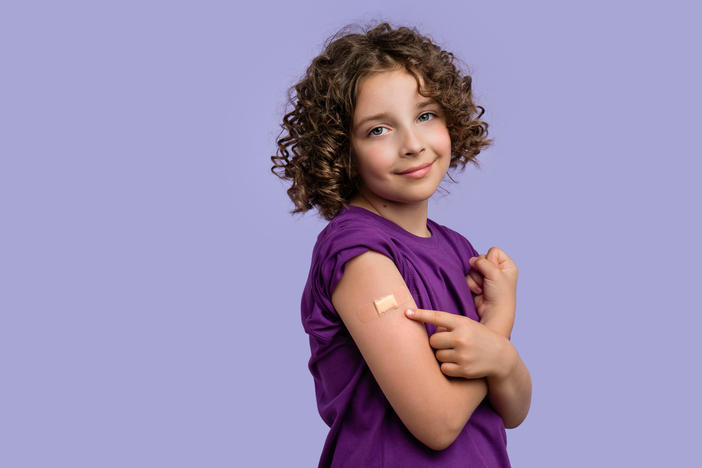
Child and Adolescent Immunizations

Download:
Resources About:
Vaccines are recommended for children and adolescents based on age, health conditions, and other factors. No personal information will be retained by CDC.
This vaccine assessment tool applies to children and adolescents from birth through 18 years old.
FAQs - Child and Adolescent
-
I will be attending college in Georgia; what immunizations are required?
The Board of Regents for the University System of Georgia develops and implements immunization policy for public colleges and universities. This policy is consistent with the Advisory Committee on Immunization Practices recommendations. To learn more about which vaccines are required and which vaccines should be considered for students attending a Georgia public college, please visit the University of Georgia's student services immunization policy website. Private colleges in Georgia develop and implement immunization policies individually for their campuses. Please contact the private college directly to inquire about their immunization requirements.
-
Do college students need to have the meningitis vaccine?
There are 2 kinds of meningitis vaccine, a polysaccharide vaccine, and a conjugate vaccine. The meningococcal conjugate vaccine is recommended for college freshmen living in dormitories. But if this form of the vaccine is unavailable, the polysaccharide vaccine may be given to those who wish to be vaccinated. In January 2004 a law went into effect in Georgia, requiring public and nonpublic post-secondary educational institutions to give students residing in campus housing information about meningococcal disease and vaccine. In addition, students are required to sign a document provided by the post-secondary institution stating that he or she has received a vaccination against meningococcal disease or that they have received information about meningitis and the vaccine.
-
My daughter received the hepatitis B vaccine series when she was in elementary school. She is going to college now---shouldn't she have a booster dose of the vaccine?
No. For those with normal immune status, booster doses are not recommended, nor is routine blood testing necessary to evaluate immune status. The need for subsequent boosters at some future time will continue to be evaluated as additional information becomes available.
-
I am concerned that if I have my older child immunized with the varicella (chickenpox) vaccine, the virus could be transmitted to my baby and cause chickenpox.
It is uncommon for the varicella vaccine to transmit virus to a contact. In most of the documented occurrences of this, the vaccinated person had developed a rash. Should this occur in the 7-21 days following vaccination, it would be best for this person to avoid prolonged close contact with a susceptible person.
-
I have been hearing a lot of things about the MMR vaccine and that it is not as safe as getting plain measles vaccine. Should I ask for that when my toddler goes in for her shots next month?
The Advisory Committee on Immunization Practices (ACIP) and the CDC continue to recommend the MMR or combination measles-mumps-rubella vaccine for all children and adults for whom the vaccine is indicated. There has been concern by some parents of autistic children that this vaccine may be associated with the neurologic disorder of autism. Independent scientific studies have concluded that the evidence does not support a connection between the MMR vaccine and autism. In addition, single antigen measles is very expensive and very difficult to find. Also, it means the child would have to have an increased number of injections and would be unnecessarily delayed in receiving protection against the three diseases.

Page Last Updated 8/14/2024